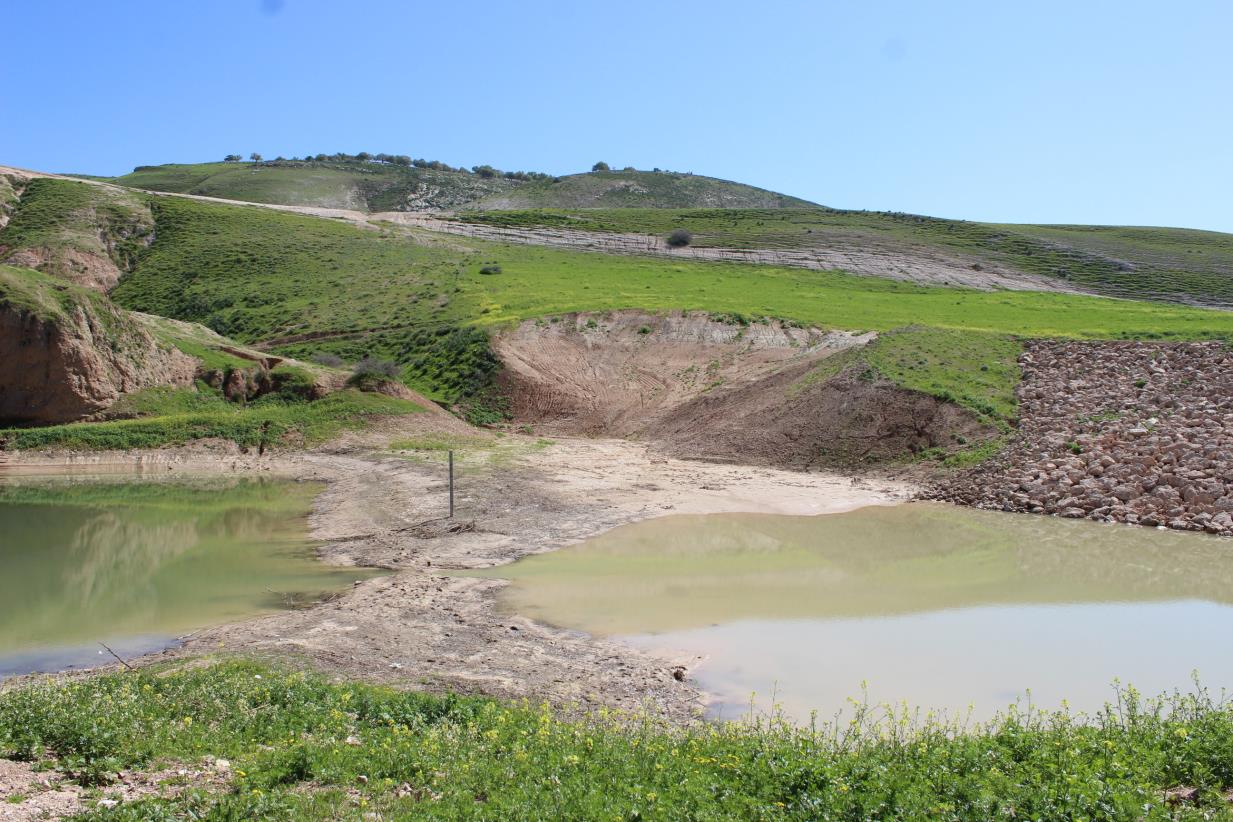Store a drop for Al Mashare’

The first water harvesting structure in the Jordan Valley was built in Al Mashare’ area to store around 100 thousand cubic meters.
Al Mashare’ area, in the northern Jordan Valley, is considered as one of the poorest areas in the country. As a follow up to the Royal Court initiatives regarding the preparation of an integrated development plan for the area, the Food and Agriculture Organization of the United Nations (FAO) agreed with Ministry of Water and Irrigation (MWI) to support Al Mashare’ as a priority area for implementing the NENA WEPS project and contribute to the harvesting and storage of rainwater falling on a side wadi (catchment) feeding the Jordan Valley. Thanks to the financial support of the Swedish International Development Cooperation Agency (SIDA), the first water harvesting structure in the Jordan Valley was built in Al Mashare’ area to store around 100 thousand cubic meters.
The pilot site was selected after a technical feasibility phase and with the aim to support the poorer farming population in the development zone no. 13 (DZ 13). The water harvesting structure aims to store and provide additional amounts of freshwater for agriculture areas highly dependent on irrigation, increasing the quality of the water delivered to pump 33. The small dam will also contribute to the groundwater recharge and flood protection and will improve the livelihoods of local communities, especially those relying on water for crops and livestock.
Furthermore, the water structure will protect the local watershed from extreme events, reduce drift and siltation, enhancing the soil-water retention capacity and reducing soil erosion and pollution. It will also have positive environmental impacts that support the ecosystem services with improved soil moisture and groundwater recharge, as well improving the surrounding community livelihoods and fight land degradation.
These activities are implemented by FAO under the regional project “Implementing the 2030 Agenda for water efficiency/productivity and water sustainability in NENA countries”. This project is funded by the Swedish International Development Cooperation Agency (SIDA). The project aims to set a proper framework for implementing the 2030 Agenda for water efficiency and productivity (SDG 6.4) through three major work packages: (i) establishing an international standard water accounting system, (ii) implementing a series of interventions to increase water efficiency and productivity, and (iii) ensuring that higher efficiency/productivity achievements for the 2030 time horizon are attained sustainably. Jordan is one of the eight targeted countries under this project.
